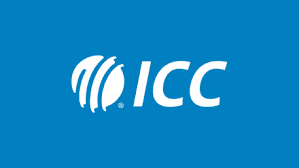What’s new in ICC’s
2023 Rules on
Combating
Corruption?
The International Chamber of Commerce (ICC) has released its updated 2023 Rules on Combating Corruption, setting a new standard for corporate practice in managing integrity risks throughout global value chains. This updated edition introduces significant changes and bolsters existing provisions, making it a crucial resource for businesses seeking to operate ethically and responsibly.
Strengthening Whistleblowing Mechanisms:
One of the most notable changes in the 2023 Rules is the strengthened focus on whistleblowing mechanisms. Recognizing the vital role whistleblowers play in uncovering and deterring wrongdoing, the revised rules advocate for robust internal and external reporting channels. These channels should be accessible, protected, and encourage employees and stakeholders to report suspected corruption without fear of retaliation.
Enhancing Third-Party Management:
The updated Rules emphasize the importance of engaging and managing third parties effectively. Recognizing that third parties often represent the weakest integrity link in a supply chain, the revised guidelines provide comprehensive guidance on risk assessment, due diligence, contractual provisions, and monitoring procedures. This helps businesses identify and mitigate corruption risks associated with agents, suppliers, and other third-party relationships.
Promoting Responsible Business Conduct:
For the first time, the ICC Rules on Combating Corruption explicitly call for the promotion of Responsible Business Conduct (RBC). This reflects the evolving expectations of businesses to go beyond mere compliance and actively contribute to positive social and environmental outcomes. The updated Rules encourage companies to embed RBC principles into their core values, policies, and practices, demonstrating a commitment to "doing good while doing no harm."
Other Notable Updates:
The 2023 Rules also introduce several other noteworthy updates, including:Expanded scope: The Rules now apply not only to commercial bribery but also to extortion, solicitation, trading in influence, and laundering the proceeds of such activities.Clarified guidance on facilitation payments: The Rules provide clearer guidance on facilitating payments, emphasizing that they should be avoided whenever possible and only made in exceptional circumstances.
Enhanced due diligence requirements: The Rules require companies to conduct more thorough due diligence on their business partners, particularly those operating in high-risk sectors or countries.
Strengthened sanctions: The Rules encourage companies to adopt a more robust approach to sanctions for corruption offenses, including disciplinary action, termination of contracts, and reporting serious offenses to relevant authorities.
Significance for Businesses:
The updated ICC Rules on Combating Corruption offer a valuable framework for businesses of all sizes and industries. By implementing the recommendations outlined in the Rules, businesses can:Reduce their exposure to corruption risks: Implementing effective anti-corruption measures can help businesses avoid costly fines, legal penalties, and reputational damage.Build trust with stakeholders: Operating with integrity fosters trust and confidence among investors, customers, employees, and other stakeholders.
Promote sustainable growth: Ethical and responsible business practices contribute to a more stable and sustainable global economy.
Gain a competitive advantage: In today's competitive market, demonstrating a commitment to ethical business practices can be a key differentiator when attracting and retaining customers.
Conclusion:
The 2023 ICC Rules on Combating Corruption represent a significant step forward in the fight against corruption. By strengthening existing provisions and introducing new measures, the revised Rules provide a comprehensive framework for businesses to operate ethically and responsibly in today's complex global environment. Businesses that embrace these recommendations will not only protect themselves from legal and reputational risks but also contribute to a more just and sustainable world.



0 comments:
Post a Comment